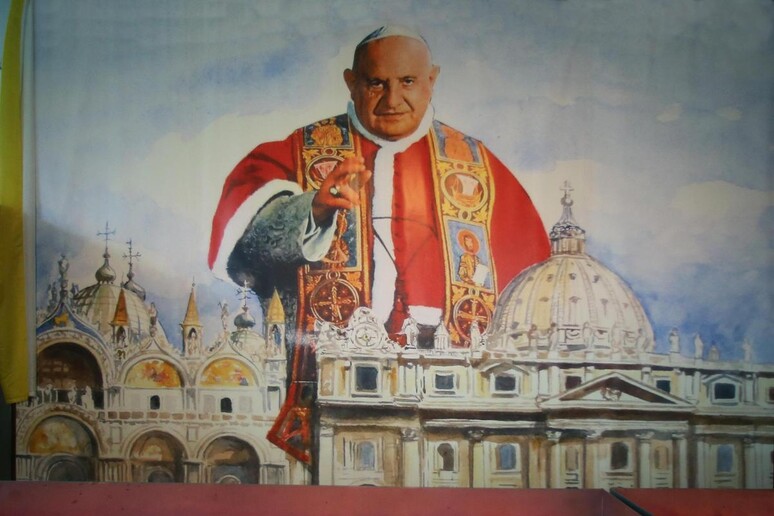(By Denis Greenan).
Ultra-traditionalist
Catholics have set their faces firmly against the canonisation
of pope John XXIII ever since he was beatified at the Cathjolic
Jubilee in 2000.
Demand that the Vatican revise its plan have consistently
come from the St. Pius X Confraternity, grouping followers of
Msgr. Marcel Lefebvre, the ultra-conservative French bishop who
was declared schismatic in 1988 and died in Econe, Switzerland,
in 1991, aged 85.
Msgr. Lefebvre contested many of the decisions taken by the
Second Vatican Council, which was convened by John XIII and
sought to introduce many innovations sidelined or allowed to
wither by later popes.
Lefebvre and his acolytes objected most dramatically to the
celebration of mass in vernacular, not only in Latin, but
remained die-hard conservatives on other issues, right down the
doctrinal line.
John XXIII was recognised as one of the great popes of the
20th century but the estimated few thousand of Lefebvre
followers remaining have repeatedly argued that the Vatican
council was invalid because it was subject to external influence
and even, they claimed, a deal with the Kremlin.
Acccording to the Lefebvrites, John XXIII entered an
agreement whereby the council would not pronounce against
Communism in exchange for the Kremlin's permission to let
Russian Orthodox observers attend.
The allegations were studied and rejected by the prelates
in charge of beatification and now canonisation proceedings.
Apart from opening up the Catholic liturgy to local
languages, homely, charismatic and progressive John XXIII also
set about reversing the papal autocracy begun by Pius IX and
extended and codified by Pius XII.
During the council, thanks to the immediate fame of
holiness which he inspired during his life, there were calls for
his canonization as a full saint by acclamation as the council
neared its end under Pope Paul VI.
Beatification authorizes Catholics to pray for intercession
from the beatified person on a local basis, while the subsequent
stage of canonization as a saint extends the authorization to
the whole church.
Pope Francis's tradition-minded predecessor Benedict XVI
sought to bring the St Pius X Confraternity back into the fold
but his efforts were stymied by the emergence of one of four
rehabilitated bishops, Richard Williamson, as a Holocaust
denier.
The Lefebrvites push for regaining influence has also been
marginalised by their recent embrace, in death, of Nazi war
criminal Erich Priebke, to whom they gave a controversial
Catholic funeral.
http://popefrancisnewsapp.com/
ALL RIGHTS RESERVED © Copyright ANSA











